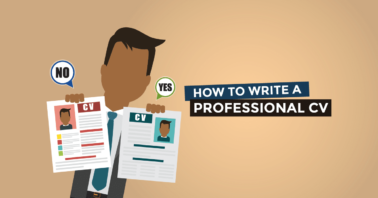Every recruiter’s dream is an applicant pool that’s full of great talent. But why does that never seem to happen?
When I worked in HR, I remember writing what I thought were great job postings for fantastic jobs only to be disappointed that I received a handful of applications that didn’t really fit the company’s needs. I felt like I was stuck choosing between a candidate who didn’t really fit the job description or company culture, or not filling an important position.
I finally realized that job ads can scare the best talent away.
The good news is that by catching a few easily fixed mistakes, you can stop chasing away the best applicants before they apply.
Here are some job ad trouble spots to watch out for:
Table of Contents
1. Your ad is hard to read
Automated text boxes on job ad sites make it seem like it’s impossible to format an ad incorrectly. But if you aren’t using bullets and subheads that make text easier to read on computer screens, you’re doing it wrong.
Applicants want to quickly find the required skills for a position before they waste time reading a long summary of a company and position. Even if you’re writing the best job ad ever for the best position ever, many applicants will get frustrated and go on to another posting if they can’t get to the essential information fast.
By making your job ad scannable by simple formatting techniques — including bullet points, subheadings, and shorter sentences like you’d find in a blog post — you can ensure that applicants stay on the posting long enough to become interested in the job.
2. Your job requirements are too strict
It seems like every entry-level job posting requires five years of experience and a master’s degree. Why? Because the recent economic downturn means it’s an employer’s market, and employers can get away with stricter requirements in an effort to improve the applicant pool.
Although the job market may be starting to turn around, job descriptions are still trending toward higher-level qualifications for what would otherwise be an entry-level or low-level job.
Those stricter requirements may actually mean you’re missing out on great candidates.
You’ll have to train candidates anyway. Chasing great applicants away with strict qualifications can limit your pool and cost you great applicants.
You don’t have to eliminate all requirements, and some jobs really do need a candidate with a master’s degree or advanced certification. But think about your opening before you make a long list of requirements, especially if you’re adding those requirements solely to limit the pool. If the job will require a lot of on-the-job training, it might be the right call to consider additional majors or backgrounds.
3. Your requirements are too basic
While you should be opening your requirements for better applicants, your biggest fear should be that boring applicants are reading the description. Creating a long list of basic skills most workers in your industry will have wastes your time, as well as your applicants’ time. It also makes you look like you don’t understand that industry.
For example, applicants usually laugh at listings that request proficiency in each and every program in the Microsoft Office Suite. You can assume that if an applicant is a Microsoft Word wizard, they at least have enough skills to get by in Excel or Access. Simply ask for Microsoft Office experience.
Additionally, assuming a user who is trained in one word processing program cannot transition to another is insulting to applicants who generally have experience with more than one version of most types of software.
Other requirements that are too basic include intangible traits that are a given on any job application, such as “good communication skills” or “works well in teams and alone.” Most of these types of requirements are difficult for candidates to judge on their own and are better left for the interview.
4. You aren’t using the right terms to describe the job
If you use too much technical language in your job description instead of terms that people actually use, the position will never show up in search results and make it difficult for qualified applicants to find the job.
Partner with the manager of the department to check your language if you’re struggling to write a position description. It’s better to check than to chase off applicants before they can even find you.
5. Your job ad is only about what applicants offer you
While it’s true that you’re looking for what applicants can offer your company, finding a great employee is also about selling your company and the position to the applicant. Your job description should include information about what makes your company a great place to work, or top talent will look elsewhere.
Applicants shouldn’t feel neutral about your company or the job after they finish reading the description, or else you risk lower application rates. Your description should excite applicants and make them want to work with you. If your job description is anything less, you’re likely to see a low application rate.
Share specific details that make your company great, so that job-seekers will be eager to get a call back from you.
What would you include in the perfect job description?
Source: Brazen Careerist




